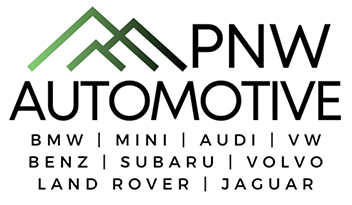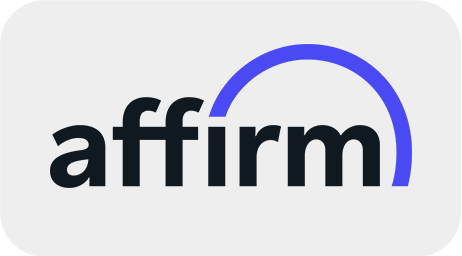Important Vehicle Fluid Checks Every Astoria Driver Should Know
Your car depends on several vital fluids to run smoothly and safely. In Astoria's coastal environment, where salt air and varying weather conditions can affect your vehicle, regular fluid checks become even more critical. Knowing how to check these fluids yourself can save you money and prevent costly breakdowns along Highway 101 or during your daily commute.
Engine Oil: Your Car's Lifeblood
Engine oil lubricates moving parts and keeps your engine running smoothly. Check your oil level monthly when the engine is cool and parked on level ground.
How to check:
- Remove the dipstick and clean it with a rag
- Reinsert it completely, then pull it out again
- Check the oil level between the minimum and maximum marks
- Look at the oil color – it should be amber to black, not milky or foamy
Fresh oil appears amber or light brown. Dark black oil needs changing soon. If you see milky or foamy oil, this could indicate coolant leaking into the engine – a serious problem requiring immediate attention.
Most vehicles need oil changes every 3,000 to 7,500 miles, depending on your car and driving conditions. Astoria's stop-and-go traffic and coastal humidity may require more frequent changes.
Coolant: Temperature Control
Your cooling system prevents engine overheating and provides heat for your cabin. In Oregon's climate, proper coolant levels are essential year-round.
Checking coolant levels:
- Never check when the engine is hot
- Look at the coolant reservoir tank (usually translucent with "MIN" and "MAX" lines)
- Coolant should be between these marks
- The liquid should appear clear with a green, orange, or pink tint
Low coolant levels can cause overheating, while contaminated coolant (rusty or murky) needs flushing. Coolant typically needs replacement every 30,000 to 50,000 miles.
Brake Fluid: Critical for Safety
Brake fluid transfers the pressure from your brake pedal to the brake components. This is especially important in Astoria, where wet roads require reliable braking performance.
Brake fluid inspection:
- Locate the brake fluid reservoir near the back of the engine compartment
- Check that fluid level is between "MIN" and "MAX" lines
- Examine the fluid color – it should be clear to light amber
- Dark, contaminated fluid needs replacement
Never ignore low brake fluid levels, as this could indicate worn brake pads or a dangerous leak in the brake system.
Power Steering Fluid: Smooth Control
Power steering fluid helps you turn the wheel easily, crucial for safe driving on coastal Oregon roads.
Checking power steering fluid:
- Find the power steering reservoir (often labeled with a steering wheel symbol)
- Check fluid level with the engine off and cool
- Some vehicles have dipsticks, others have "MIN/MAX" markings on the reservoir
- Fluid should be clear to light amber
Hard steering, whining noises when turning, or fluid leaks under your car indicate power steering problems that need immediate attention.
Transmission Fluid: Smooth Shifting
Transmission fluid lubricates and cools your transmission components. Whether you drive a manual or automatic, this fluid is essential for smooth operation.
For automatic transmissions:
- Check with the engine running and transmission warm
- Use the transmission dipstick (often has a red handle)
- Fluid should be bright red and smell sweet
- Dark, burnt-smelling fluid needs immediate replacement
Manual transmissions typically require less frequent fluid changes, but the principle remains the same – clean fluid ensures smooth shifting.
Windshield Washer Fluid: Clear Vision
Oregon's frequent rain and road spray make windshield washer fluid essential for clear visibility.
Washer fluid basics:
- Check the reservoir level regularly
- Use proper windshield washer fluid, not water
- Consider all-season formulas that won't freeze
- Top off monthly or as needed
Clean windshields are crucial for safe driving, especially during Astoria's rainy season when visibility can be challenging.
When Professional Help is Needed
While checking fluid levels is straightforward, interpreting what you find requires experience. Contaminated fluids, unusual colors, or rapidly dropping levels often indicate underlying problems that need professional diagnosis.
Signs to contact a professional:
- Fluids that change color quickly
- Sweet smells (possible coolant leak)
- Burnt odors (transmission or brake issues)
- Puddles under your parked car
- Warning lights on your dashboard
The Importance of Regular Checks
Checking your vehicle's fluids monthly takes just a few minutes but can prevent expensive repairs. Astoria's coastal environment, with its salt air and humidity, makes regular maintenance even more important for vehicle longevity.
Keep a simple log of your fluid checks and any issues you notice. This information helps technicians diagnose problems more quickly and can save you money on diagnostic fees.
Protecting Your Investment
Your vehicle represents a significant investment, and proper fluid maintenance protects that investment. Regular checks help ensure reliable transportation for work, family activities, and exploring the beautiful Oregon coast.
Don't wait until warning lights appear or problems develop. Proactive fluid maintenance keeps your car running safely and efficiently while avoiding the inconvenience of unexpected breakdowns.
Ready to ensure your vehicle's fluids are properly maintained? The experienced technicians at PNW Automotive provide comprehensive fluid service and inspection for Astoria drivers. From brake fluid flushes to coolant system maintenance, our ASE-certified master technicians have the expertise to keep your vehicle running smoothly. Schedule your fluid inspection today by calling (971) 704-5077 or visiting us at 1050 Olney Ave. Let us help you maintain your vehicle's health and your peace of mind.
What We Do
Our Services
North Coast’s Premier Specialists in European, Asian, & Luxury Auto Repair
AC & Heat Repair
Don’t let extreme temperatures disrupt your comfort—trust us for expert AC and heating system repairs to keep you comfortable all year long, even in cases of system failure.
Brake Repair
Stay safe on the road and ensure optimal braking performance for your European vehicle with our professional brake repair services, trusted by drivers throughout the Pacific Northwest.
Suspension Repair
Restore a smooth, controlled ride and improve handling with our specialized suspension repair and maintenance services. Whether it’s stabilizers, shocks, or struts, our trained team ensures your suspension system keeps your vehicle safe and steady on the road.
Engine Repair
Enhance peak performance and smooth operation with our engine diagnostic and repair services, tailored for European and high-performance vehicles. Our comprehensive diagnostics and precision repairs ensure your engine runs flawlessly.








